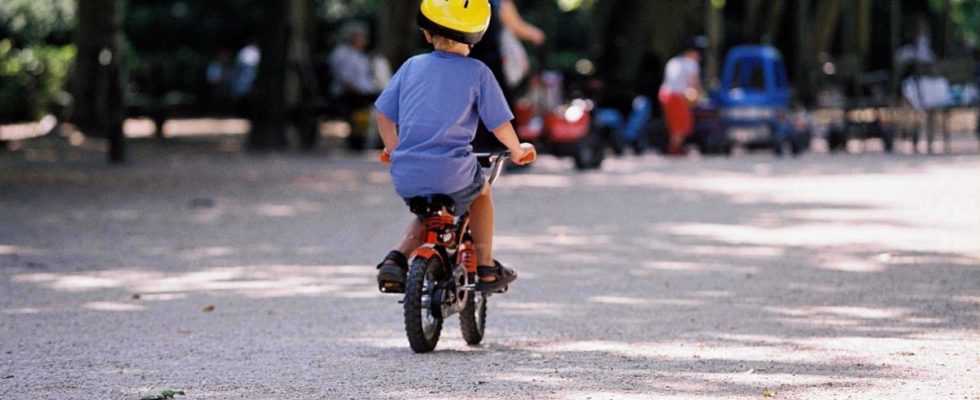Giving children “good reflexes” when cycling, to avoid accidents, and encouraging practice. Following the recommendations of the government, the City of Paris has decided to work twice as hard on the national program “Know how to ride a bike”which teaches the basics of riding a bicycle to children aged 6 to 11.
From next year, 340 elementary schools out of the 355 in the city will participate in this program, announced the Paris City Hall on the occasion of the launch of its new street code, with 100% of schools eventually. Currently, only 40 classes have passed the training and obtained the certificate, called “bicycle passport” by the town hall. The students cycled for two half-days over two weeks, Porte de la Muette stadium and around the Cipale velodrome, in the Bois de Vincennes.
Storage problem
But there was an urgent need to accelerate this program, at a time when the practice of cycling is growing. Between 2019 and 2022, the number of accidents with soft mobility vehicles fell from 978 to 1478, saccording to the police headquarters interviewed by TF1. Even if the number of cyclists killed has rather decreased at the same time, with only one cyclist killed in 2022 against 4, 8 and 7 respectively in 2019, 2020 and 2021, according to figures from the Regional and Interdepartmental Directorate for the Environment, development and transport (DRIEAT) – Île-de-France, relayed by Better Getting Around by Bicycle (MDB)which finds a “security in numbers” effect.
Nationally, 185,000 children have already received their “know how to ride a bike” certificate, but there are obstacles on the spot. In Paris, the possibilities for storing bicycles are limited and the equipment is expensive. 2,000 bicycles are currently available in schools, according to Cyrille Peyraube, the chief of staff of the assistant for school affairs, Patrick Bloche. “We didn’t start the program earlier because of the storage of the bikes,” he explains, as the program has been rolled out nationwide since 2019.
Five routes
The last part of the program, “block 3”, which consists of taking the students out on the road to confront them with real traffic conditions, is also complicated to implement in a large city like Paris. Patrick Bloche’s services are currently working on a mapping of schools to identify establishments that can accommodate this block. So far, 13 schools have been identified as enabling Block 3 learning, but the mapping is far from over, as the services have collected information from 264 out of 355 schools.
The town hall has worked on five possible routes, in different corners of the capital: Porte d’Auteuil, Gare du Nord, Quai de la Gare, Porte de Versailles and finally around the Bois de Vincennes. “We are going to multiply the points in Paris where we can learn to ride a bike,” says Cyrille Peyraube, optimistic.
Judging that the means are however not sufficient, the communist group proposes in an amendment which will be presented to the next Council of Paris to add 200,000 euros of additional budget for the purchase of shared bicycles and for a dedicated development near the lawn of Reuilly.

